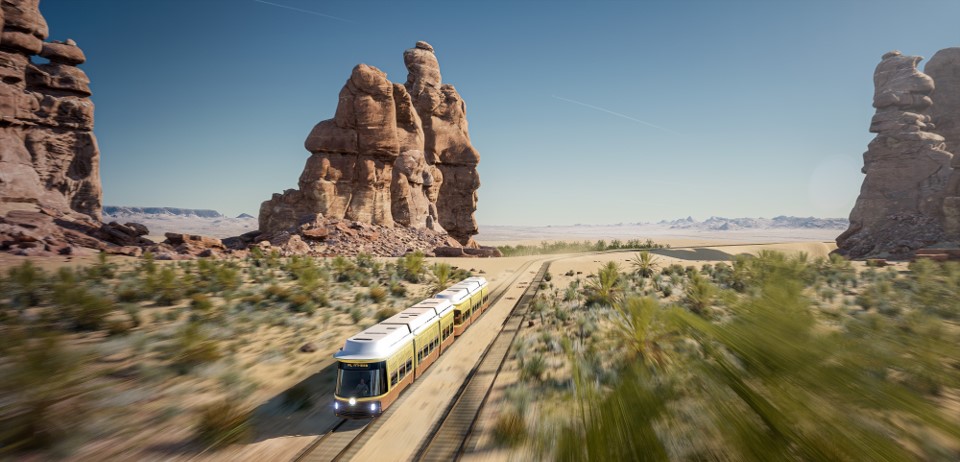 Alstom and The Royal Commission for AlUla (RCU), in the Kingdom of Saudi Arabia, signed a EUR 500 million contract for the supply of AlUla tram system which will be the world’s longest catenary-free line.
Alstom and The Royal Commission for AlUla (RCU), in the Kingdom of Saudi Arabia, signed a EUR 500 million contract for the supply of AlUla tram system which will be the world’s longest catenary-free line.
The fully integrated Alstom tramway system will feature 20 state-of-the-art Citadis B battery-trams. The 22.4 km line will encapsulate richness, history, and green mobility like no other, linking 17 strategically located stations, offering unmatched access to AlUla’s five core historical districts, including UNESCO World Heritage sites such as AlUla Old Town (District 1), Dadan (District 2), Jabal Ikmah (District 3), Nabataean Horizon (District 4), and Hegra Historical City (District 5).
Alstom plays a pivotal role in the AlUla tram system, from comprehensive system design to integration, installation and testing and commissioning of the catenary-free and battery-powered tramway.
Alstom will also deliver power supply, signalling, communication, and depot equipment and provide full maintenance for the trams for 10 years, using HealthHub, Alstom’s tool for predictive maintenance and fleet management to deliver the highest availability. The services teams will also use an itinerant workshop for all types of overhauls to be more flexible and reduce capital expenditure, and provide robust training programmes for tram personnel, ensuring operational efficiency.
The project will draw on Alstom’s global in-house expertise in integrated railway systems. The trams will be manufactured across Alstom’s French production sites, including La Rochelle for both design and construction.
In July, Systra was awarded the design contract covering the preliminary and detailed design for the tramway system including the infrastructure, stations, depot, rolling stock and systems.
This ambitious project aims to deliver unique transit options for residents and tourists, with innovative, climate-adapted trams.
In July 2022, the Royal Commission announced that the tramway system will be 50 km long and will be built in two phases. The project is based on ‘travel through time’ vision which through the design of the stations and vehicles will provide tourists the opportunity to discover region’s lifestyle from Dadan, Jabal Ikmah and the Nabatean era.
Share on:



